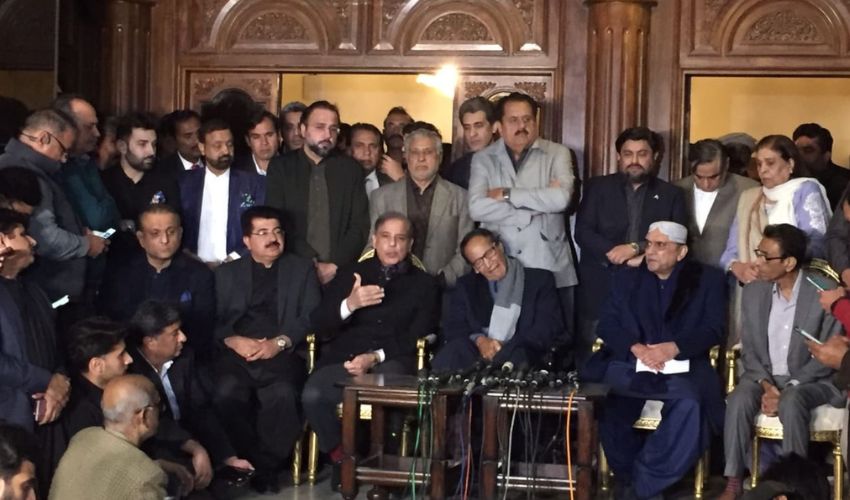On Tuesday night, leaders of various political parties, including PMLN, PPP, MQMP, PMLQ, IPP, and BAP, announced a six-party plan for the formation of the government in the center. The leaders gathered at the residence of PMLQ leader Chaudhry Shujaat Hussain for discussions.
While not forming a ruling alliance, the PPP declared that it would not join the government but offered its 54 votes to elect someone from PMLN, likely Shehbaz Sharif, as the prime minister. The coalition consists of PMLN’s 75 seats, PPP’s 54, MQMP’s 17, PMLQ’s 3, and IPP’s 2 seats, along with one seat from BAP, totaling 152.

In addition to their allocated seats, PMLN, PPP, MQMP, and PMLQ are expected to share reserved seats for women and minorities in the National Assembly. The six-party group aims to secure women’s reserved seats from Punjab, Sindh, and Balochistan, based on the Article 51 provisions of the constitution.
Regarding reserved seats for minorities, PTI might secure most of these seats, traditionally allocated to the three largest groups in the National Assembly. Out of 70 reserved seats, approximately 58 could go to the six-party group, with 12 potentially going to PTI/MWM.
While the ruling group falls a bit short of the two-thirds majority required to amend the constitution in a 336-member house, it could potentially achieve this with the support of JUI-F, even though the latter has indicated it won’t officially join the ruling group. The ruling coalition, if supported by JUI-F, would be able to amend the constitution.










